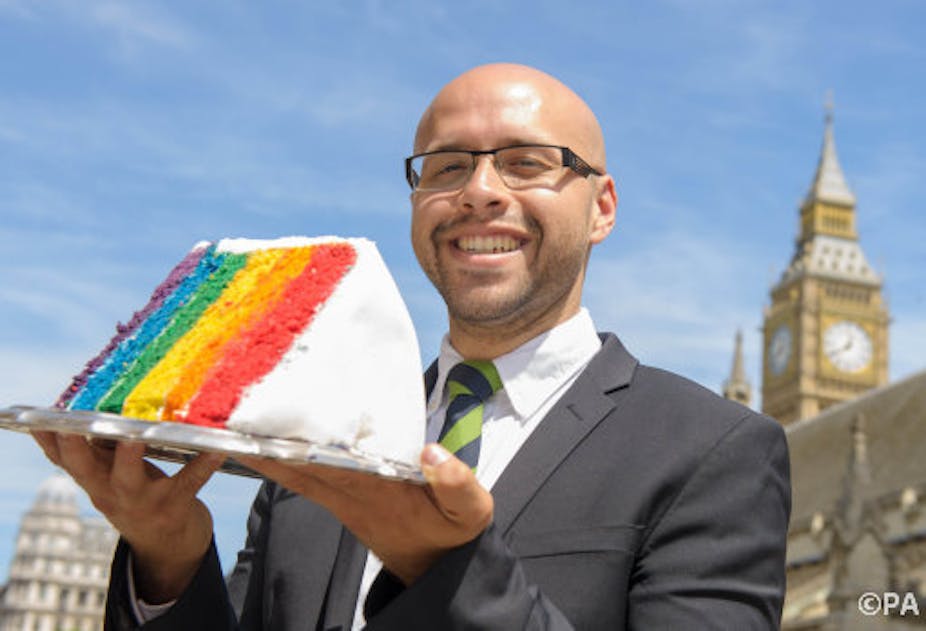The recent furore over a Northern Ireland bakery’s refusal to make a cake bearing the iced message “support gay marriage” is just the latest in a series of incidents in which conservative Christians have cited religious beliefs as a reason to refuse gay men and lesbians goods and services – from wedding photographs to adoption assistance to guesthouse accommodation.
Internationally, sharp court battles have been waged as conservative Christians demand an exemption from provisions prohibiting discrimination on the grounds of sexual orientation.
Civil disobedience is an important, historically recognised mode for expressing dissent, but state law should not grant “equality objectors” in these circumstances a legal right to say no. A legal commitment to equality is meaningless if beliefs provide a legitimate basis for exemption. After all, it’s mainly beliefs that lead people to oppose gay equality.
Being required to bake cakes or print leaflets which expressly advocate a political position is, I think, different.
Writing on the cake
Some would argue it is discriminatory to refuse to write “support gay marriage” on a wedding cake. But this depends on how others are treated, whether it’s heterosexuals asking for the same cake message or for a different one.
In my view, it’s important not to treat the refusal to print or ice a message as necessarily discriminatory. While sometimes it certainly is, as when a refusal is directly tied to who or what people are, a refusal to participate in the production of a particular message may, in some circumstances, be valid.
In disputes over gay equality, conservative critics often say that protecting religious freedom is a legitimate priority. From a progressive perspective, the legitimacy of refusal may lie elsewhere. Many on the left would object to having to produce materials advocating reactionary causes; some might also have sympathy with conservative Christian refusal as a way of resisting the ever-expanding dominion of money’s purchasing power – not everything consumers want and demand should be available (people might after all make or ice their own cakes).
Workers also have a legitimate right not to be treated as machines, and this means they have some moral right to have their relationship with the service they provide or the objects they create recognised, since some part of themselves is tied to what they do.
Freedom of silence
When it comes to political statements on wedding cakes, the law should not always be on the side of the consumer. This isn’t because gay equality and Christian demands to discriminate are equivalents simply needing the “right balance”; they are not. Bakers shouldn’t be legally exempt from baking a cake for gay people, even a wedding cake, because they disapprove on religious or philosophical grounds. However, asking people to participate in the creation of messages they find abhorrent also raises issues other than discrimination.
Considerable attention routinely gets paid to questions of speech rights, of what can be said, by whom and where. Helping to produce other’s people’s advocacy, even when it’s only a message on a cake, also raises questions about entitlements to silence: when, for what reasons, and under what conditions can someone refuse to participate in certain kinds of speech?
In these conflicts, where commercial producers refuse to take up the position of “speech surrogates” helping to create someone else’s political speech, we might also ask difficult questions about what counts as participation - is a sole practitioner in the same position as a factory? – and what, exactly, counts as speech.

